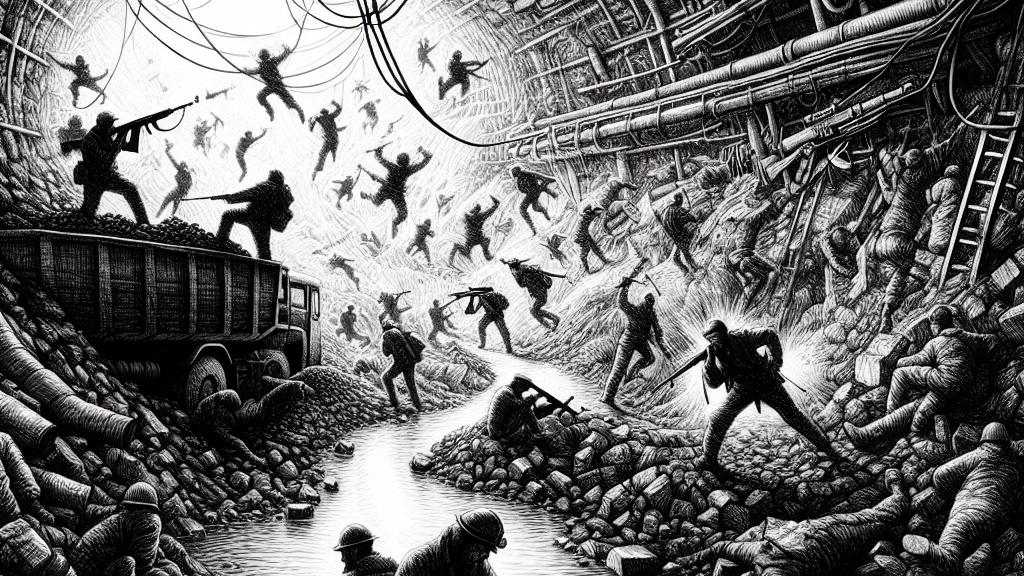Devastating Attack on Mine Workers in Balochistan: A Closer Look
Overview
- A horrific assault in Duki District, Balochistan claimed the lives of at least 21 mine workers, shocking the nation.
- The Baloch Liberation Army quickly condemned the violence, denying any connection to this tragic event.
- This incident underscores the urgency of addressing the longstanding conflict and instability in Balochistan, which is rich in natural resources yet fraught with suffering.

Chronicle of the Attack
In the early hours of October 11, 2024, a chilling scene unfolded in Duki District, Balochistan, as armed militants unleashed chaos upon the Junaid Coal Co. mines. The well-planned assault resulted in the tragic deaths of at least 21 workers, many of whom were caught off guard while peacefully sleeping. This brutal attack involved a relentless barrage of weapons, including firearms, grenades, and even rockets—an alarming reminder of the perilous environment in which workers operate. Local residents recounted harrowing tales of confusion and terror, with echoes of gunfire ringing through the stillness of the night, leaving them questioning their safety and the rule of law in a region long marred by violence.
Responses and Responsibility
In an unexpected twist, the Baloch Liberation Army (BLA), previously associated with insurgent activities, swiftly condemned the attack and firmly denied any involvement. This statement raises critical questions about the myriad factions operating in this complex landscape. Who were the perpetrators, if not the BLA? Many locals suspect that rival groups or even opportunistic criminals may have exploited the situation to instigate violence. The BLA's denial seeks to distance itself from public backlash, illustrating the intricate dynamics of insurgency in Balochistan. Community leaders are now calling for accountability and comprehensive investigations, emphasizing that the true culprits must be brought to light to restore a semblance of security and trust.
The Broader Context of Balochistan's Conflict
Balochistan, a resource-rich region, has been engulfed in conflict for decades, characterized by a struggle for autonomy and a demand for fair distribution of its vast mineral wealth. The Baloch people, marginalized and often oppressed, view the central government as a source of betrayal rather than protection. For example, numerous incidents over the past several months have seen a significant rise in attacks—notably 62 in just the first quarter of 2024—targeting security forces and foreign investments alike. One striking case involved an attack on Chinese workers, symbolizing the discontent against foreign projects perceived as exploitative. As this cycle of violence perpetuates, local voices stress the importance of dialogue, highlighting that a sustainable resolution must address the deep-seated grievances that fuel ongoing insurgency. Without meaningful engagement, peace remains a distant dream for the long-suffering people of Balochistan.

Loading...